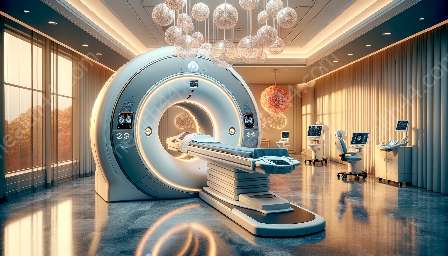Medical technology in the field of hematology has seen significant advancements in recent years, leading to the development of innovative Hematology Analyzers. These devices play a crucial role in the diagnosis and treatment of various blood-related disorders and diseases. As an essential component of medical devices & equipment, they work in tandem with medical imaging devices to provide a comprehensive approach to patient care.
The Role of Hematology Analyzers
Hematology analyzers are specialized medical instruments designed to analyze blood components. They automate the process of identifying and quantifying different blood cell types, including red blood cells, white blood cells, and platelets. These analyzers provide valuable information about a patient's overall health and assist healthcare professionals in diagnosing conditions such as anemia, infections, and leukemia.
Furthermore, hematology analyzers play a critical role in monitoring the effectiveness of treatments such as chemotherapy and other blood-related therapies. These devices help in assessing the impact of treatments on blood cell counts and ensure patient safety during medical interventions.
Interconnection with Medical Imaging Devices
Medical imaging devices, such as MRI machines and CT scanners, complement the functions of hematology analyzers by providing detailed visualizations of the internal structures and systems of the body. When used together, hematology analyzers and medical imaging devices offer a comprehensive understanding of a patient's health status.
For example, in cases of cancer, hematology analyzers help in identifying abnormal blood cell counts indicative of a malignancy, while medical imaging devices can provide precise images of tumor locations and sizes. This interconnection allows healthcare professionals to form a comprehensive diagnosis and develop tailored treatment plans for patients.
Advancements in Hematology Analyzers
Recent advancements in hematology analyzers have led to the development of more sophisticated and efficient devices. These modern analyzers incorporate advanced technologies, such as flow cytometry and digital imaging, to provide higher accuracy and detailed analysis of blood samples. Additionally, integration with artificial intelligence (AI) algorithms has enabled the automation of complex analyses, reducing turnaround times and enhancing diagnostic precision.
Furthermore, the miniaturization of hematology analyzers has enabled their integration into point-of-care devices, allowing for rapid blood analysis at the bedside or in remote settings. These portable analyzers have revolutionized emergency and critical care scenarios, where quick and accurate blood analysis is crucial for timely decision-making.
Conclusion
Hematology analyzers represent a critical aspect of medical devices & equipment, playing a pivotal role in the diagnosis, monitoring, and treatment of various blood-related disorders. Their interconnection with medical imaging devices enhances the overall diagnostic capabilities of healthcare providers, offering a holistic approach to patient care. With continuous advancements in technology, hematology analyzers are set to further revolutionize the field of hematology and contribute to improved patient outcomes.


